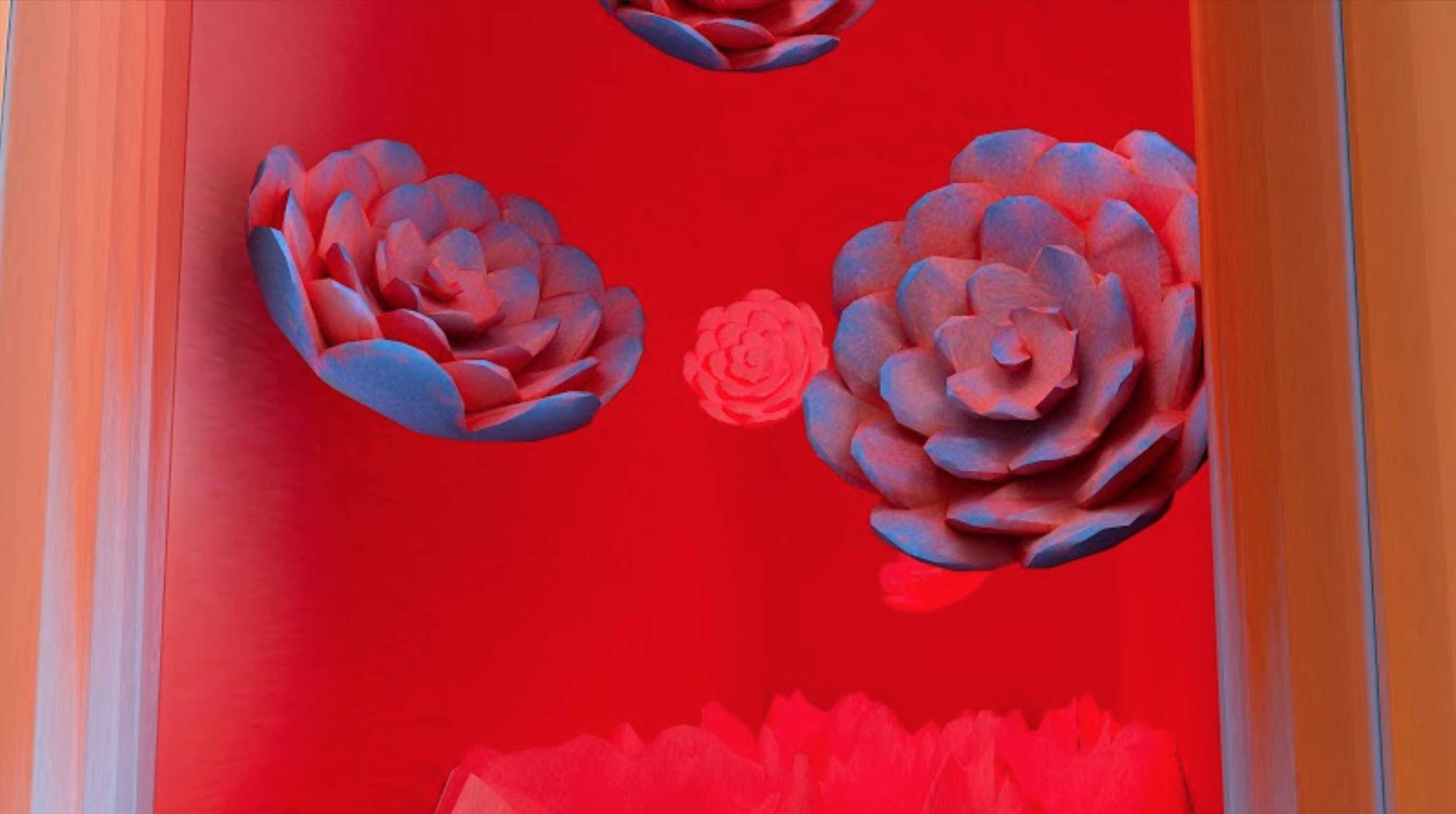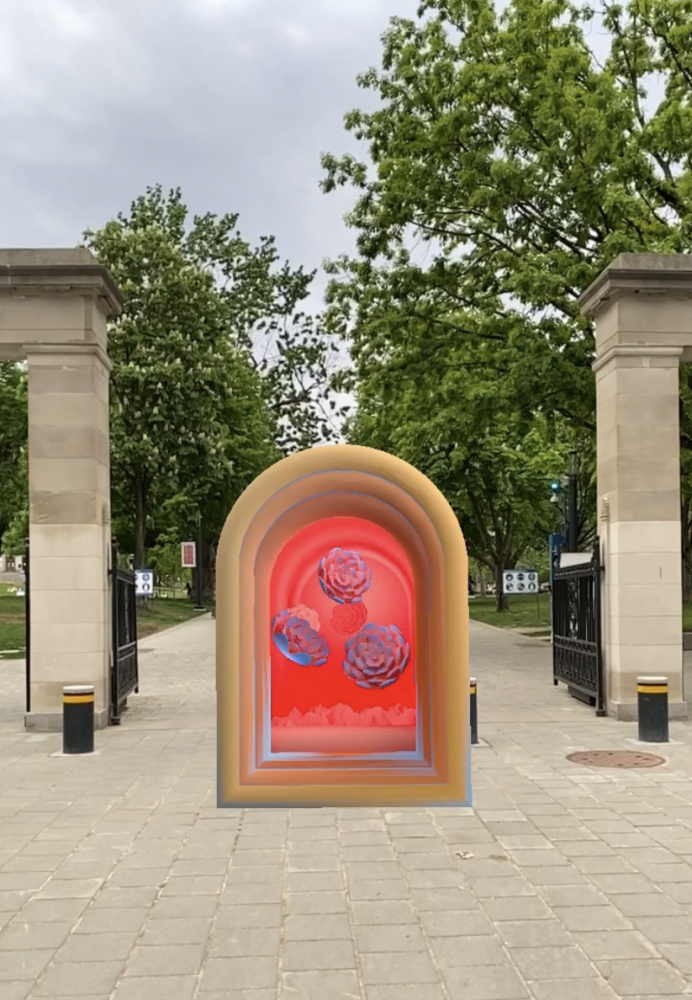Artists
Alex McLeod
Alex McLeod (born in Toronto, Canada; lives in Toronto, Canada) creates dreamlike worlds inspired by digital culture. He is interested in the dynamics of simulation and representation of nature, and he draws on the visual repertoire of video games to build surreal landscapes that are abstract and distorted. Although they celebrate the potential of 3D modelling and animation, McLeod’s exuberant and critical universes invite us to reflect on how technologies influence our relationship with territory and the environment.
- Born
- Toronto, Canada
- Countries / Nations
- Canada
- Lives
- Toronto, Canada
- Website
- alxclub.com

Works

Alex McLeod, Rainbow Portal (detail), 2021, augmented reality sculpture. Courtesy of the artist

Alex McLeod, rainbow portal, augmented reality artwork documentation, 2021.
Liquid Crystals
The works in the Ghost Stories series present colourful, vibrant panoramas in which lively organic fragments—excrescences, bits of plant matter, hybrid forms—move around in various ways or flout the laws of physics. In a sense, these worlds are avatars of nature: they stand in for reality by conferring life upon matter, which is suddenly animated and infused with energy networks. Some elements remain in suspension or spin endlessly, while others bump into each other. Flowers unfurl their petals in a continuous cycle of life and death. Although these topographies sometimes contain traces of human life, they are deliberately stripped of people. The result is spectral images—hallucinatory dreams produced by human and artificial intelligence that remind us of the transitory, unstable, and ephemeral qualities of the natural spaces in which we have erected our habitats. McLeod’s quirky, “pop” worlds are a gateway to alternative dimensions in which time and space unfold in nonlinear ways. He delves into the lifecycles of technological artefacts such as video-game environments and explores what happens to pixels, codes, and other digital entities once their practical life is over. In Ghost Stories, which offers a reflection on the future of natural and media environments, McLeod highlights the need to broaden our conception of landscape—whether real or simulated—and envision its transformative power over our perception.